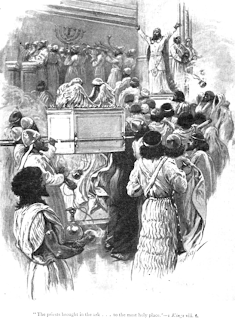TO CHEW ON: "For from within, out of the heart of man, come evil thoughts, sexual immorality, theft, murder, adultery, coveting, wickedness, deceit, sensuality, envy, slander, pride, foolishness. All of these evil things come from within, and they defile a person." Mark 7:21-23 ESV
The Pharisees' concept of purity seems to assume that they started out pure, or had achieved purity with their ceremonies. Then they had to keep themselves pristine by doing all kinds of cleansing rituals so no unclean thing could enter their bodies.
But Jesus told them they had it backward. For it wasn't the things entering their bodies that defiled them but their very thoughts and actions—the things that flowed out of their fallen, defiled, impure, rotten hearts.
Are we as equally dirty? It's common to hear a person, when faced with his or her sinfulness, object: 'I've lived a pretty good life—never murdered anyone, robbed a bank, or even cheated on my spouse.'
But look at the things Jesus lists: evil thoughts ~ sexual immorality ~ theft ~ murder ~ adultery ~ coveting ~ wickedness ~ deceit ~ sensuality ~ envy ~ slander ~ pride ~ foolishness. We see that lumped in with murder, theft and adultery are evil thoughts, coveting, envy, pride, foolishness. Can even one of us claim to never have committed at least one of these? By Jesus' measure we're all defiled and need purifying from the inside out.
The good news is that inner purity is His free gift to us:
"I will sprinkle clean water on you, and you shall be clean from all your uncleannesses, and from all your idols I will cleanse you."- Ezekiel 36:25 ESV
“Come now, let us reason together, says the LORD: though your sins are like scarlet, they shall be as white as snow; though they are red like crimson, they shall become like wool." - Isaiah 1:18 ESV
"But if we walk in the light, as he is in the light, we have fellowship with one another, and the blood of Jesus his Son cleanses us from all sin." - 1 John 1:7 ESV
PRAYER: Thank You for making my position before You very clear. I need Your cleansing to purify me from the inside. Amen.
*********
Scriptures marked ESV are from the ESV® Bible (The Holy Bible, English Standard Version®) copyright © 2001 by Crossway, a publishing ministry of Good News Publishers. ESV® Text Edition: 2011. The ESV® text has been reproduced in cooperation with and by permission of Good News Publishers. Unauthorized reproduction of this publication is prohibited. All rights reserved.



















